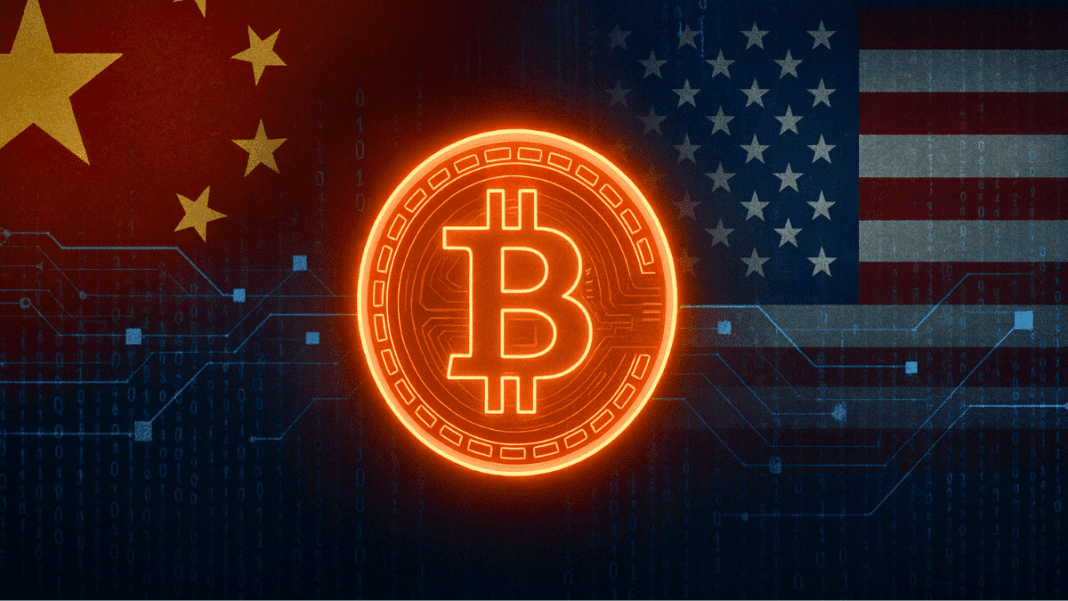A new cyber dispute has erupted between China and the United States over a huge stash of stolen cryptocurrency. China’s National Computer Virus Emergency Response Center (CVERC) has accused the U.S. government of taking part in a crypto theft involving 127,000 Bitcoin, worth about $13 billion.
According to a report released by CVERC, the U.S. Department of Justice (DOJ) seized Bitcoin that was originally stolen in 2020 from a Chinese cryptocurrency mining pool called LuBian. The center said the hack was conducted by a “state-level hacking organization” and that the later U.S. seizure might have been part of the same operation.
The report was published by the Global Times, a Chinese state-owned newspaper linked to the People’s Daily. It claimed that the hack and the U.S. seizure were connected, suggesting that advanced cyber tools were used in both incidents. The accusation has further strained relations between the two global powers.
Dormant Coins Suddenly Move After Four Years
The 2020 LuBian mining pool hack led to the loss of 127,000 Bitcoin, which remained untouched for nearly four years. For a long time, the stolen funds stayed hidden in digital wallets, and the incident attracted little attention.
Trump’s new money machine — small banks Dominari and Yorkville drive family’s crypto expansion
In mid-2024, however, those same Bitcoin were quietly transferred to new wallets. Soon after, blockchain analysis firms such as Arkham Intelligence identified those wallets as belonging to the U.S. government. This discovery raised questions about how the United States obtained control over such a large amount of Bitcoin linked to the earlier Chinese hack.
CVERC’s report suggested that the movement of these coins was not random. It argued that the same hacking tools used in the original theft may have been involved again when the Bitcoin changed hands. The agency said this shows signs of a coordinated, long-term cyber operation rather than a simple law enforcement seizure.
The U.S. government, on the other hand, has denied all allegations. Officials said the Bitcoin were seized legally as part of an investigation involving Chen Zhi, chairman of Cambodia’s Prince Group, who has been indicted in the U.S. for running a large-scale crypto fraud scheme. According to the DOJ, the seized coins are criminal proceeds, not property belonging to China or the LuBian pool.
U.S. Denies Wrongdoing as Dispute Escalates
The main disagreement centers on who rightfully controls the Bitcoin. China says the U.S. unlawfully took assets stolen from a Chinese company. The U.S. insists the funds were part of a criminal network investigation and that the seizure followed standard legal procedures.
Obama attacks Trump family’s crypto riches — says “White House became a crypto exchange”
CVERC described the case as involving advanced cyber techniques and claimed that the operation used “nation-level infrastructure.” The Global Times further reported that this could indicate direct involvement by a state-backed group, implying that the same organization may have carried out both the 2020 hack and the 2024 Bitcoin transfer.
Meanwhile, the U.S. Department of Justice and the U.S. Treasury have not issued detailed public comments. According to reports, both agencies were contacted for statements but did not respond by press time.
The allegations have drawn global attention because of the scale of the stolen Bitcoin and the suggestion of government-level cyber activity. With 127,000 Bitcoin now reportedly held in wallets linked to the U.S. government, the dispute highlights the growing tension between law enforcement actions and cybersecurity claims in the digital asset world.
The case also underscores how cryptocurrency has become a new front in international disputes, blending elements of finance, technology, and politics. Both countries continue to stand firm in their versions of events, leaving one of the biggest mysteries in crypto history unresolved.





